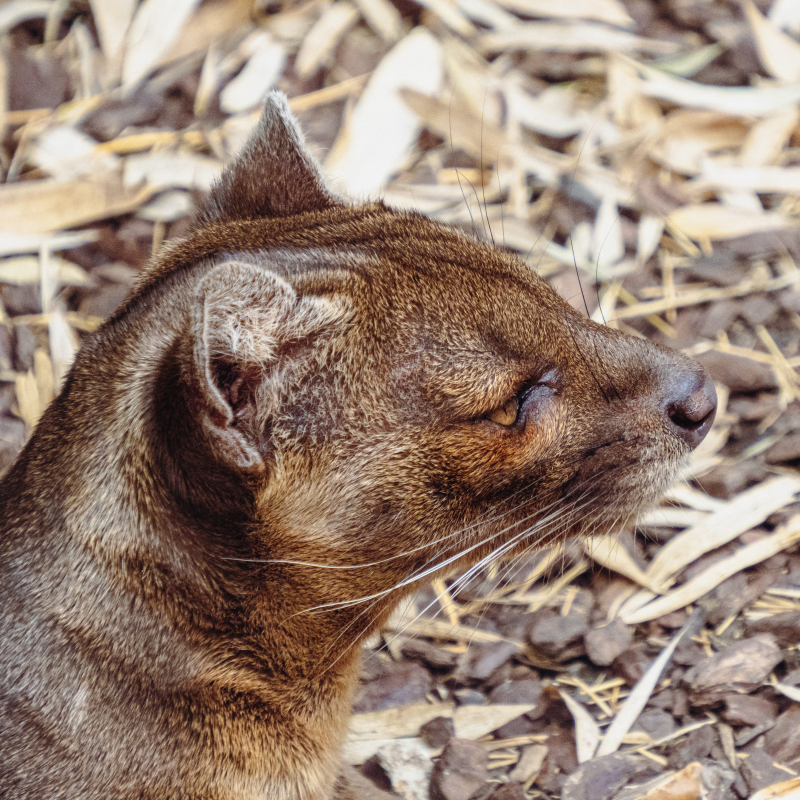Fossa
The fossa, a unique and enigmatic creature, is a member of the animal kingdom that stands out among common animals starting with the letter "F." Scientifically known as Cryptoprocta ferox, the fossa is native to the island of Madagascar, making it an exclusive inhabitant of this ecologically diverse region.
The fossa's appearance is a blend of feline and mongoose characteristics, creating a distinctive and fascinating creature. Resembling a large cat with an elongated body and a pointed snout, the fossa boasts a rich, reddish-brown fur coat that enhances its aesthetic allure. Its agility and slender frame contribute to its adaptability within the varied landscapes of Madagascar, including rainforests, deciduous forests, and savannas.
Despite its feline appearance, the fossa is more closely related to mongooses than to cats. This evolutionary divergence has equipped the fossa with a set of specialized features, including semi-retractable claws and flexible ankle joints that allow for effective climbing and maneuvering through the dense vegetation of its habitat.
As a carnivorous mammal, the fossa is an apex predator in its ecosystem. Its diet consists of a diverse range of prey, including lemurs, rodents, birds, and reptiles. The fossa's hunting prowess is facilitated by its sharp claws, strong jaw, and keen sense of smell, allowing it to navigate and thrive in the intricate ecosystems of Madagascar.
One notable aspect of the fossa's behavior is its arboreal hunting strategy. While it is adept at ground-based pursuits, the fossa is equally skilled in climbing trees, enabling it to access prey in both terrestrial and arboreal environments. This adaptability showcases the fossa's resourcefulness and its ability to exploit various niches within its ecosystem.
The fossa also plays a crucial role in maintaining the ecological balance of Madagascar. As a top predator, it helps control the population of smaller mammals, preventing overgrazing and maintaining the health of plant communities. Despite its ecological importance, the fossa faces conservation challenges due to habitat loss, hunting, and competition with introduced species.
















